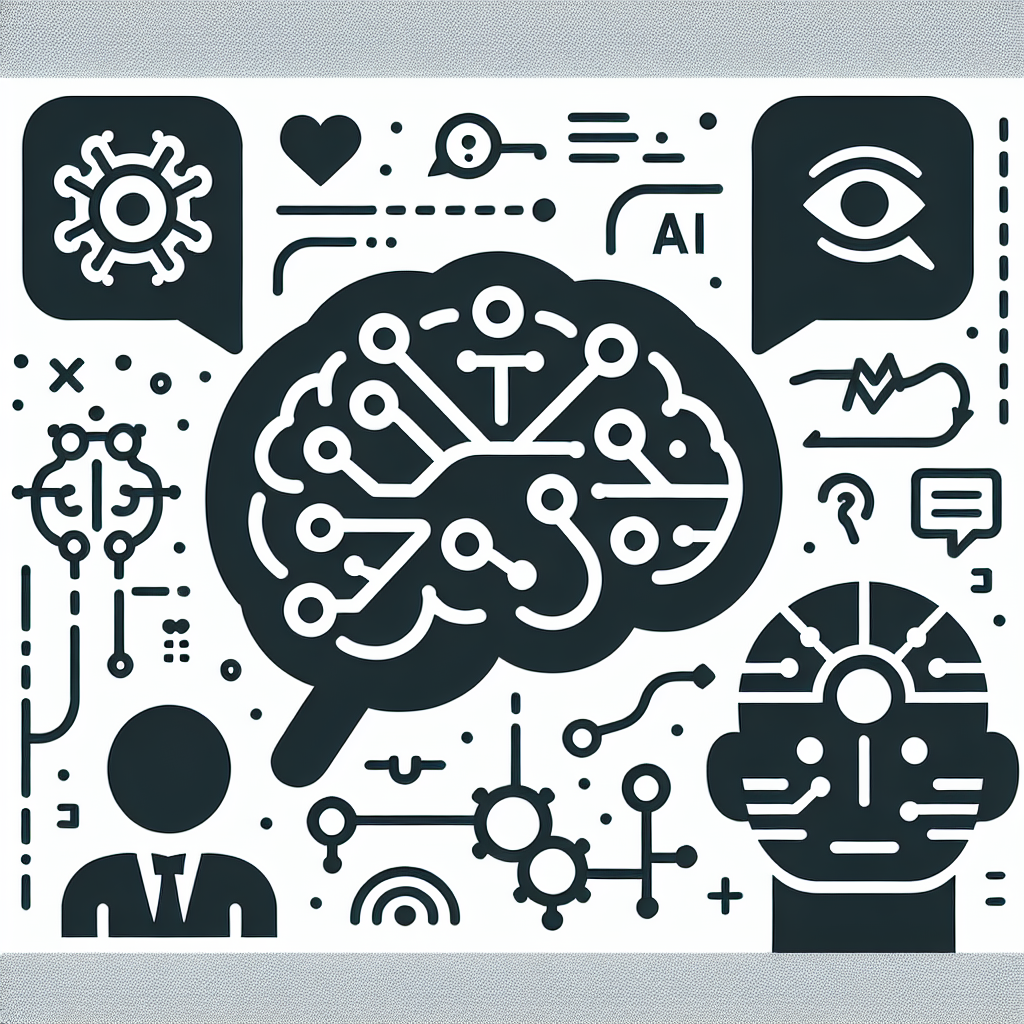Conversational AI: A Tool for Improving Mental Health Support
In recent years, there has been a growing recognition of the importance of mental health and the need for better support and resources for those struggling with mental health issues. Conversational AI, also known as chatbots or virtual assistants, has emerged as a potential tool for improving mental health support and providing more accessible and personalized care.
Conversational AI refers to artificial intelligence systems that can engage in natural language conversations with users. These systems can be programmed to provide information, support, and guidance on a wide range of topics, including mental health. By leveraging the power of machine learning and natural language processing, conversational AI can offer personalized and timely support to individuals in need.
There are several ways in which conversational AI can be used to improve mental health support:
1. Accessibility: One of the key benefits of conversational AI is its accessibility. Chatbots and virtual assistants can be accessed through a variety of platforms, including websites, messaging apps, and social media platforms. This means that individuals can access mental health support at any time, from anywhere, without the need for an in-person appointment.
2. Personalization: Conversational AI can be personalized to meet the individual needs of users. By collecting data on users’ preferences, behaviors, and responses, chatbots can offer tailored advice and support that is relevant to the user’s specific situation. This personalized approach can help individuals feel more supported and understood.
3. Timely intervention: Conversational AI can provide immediate support and intervention when individuals are in distress. Chatbots can offer coping strategies, relaxation techniques, and crisis intervention resources to help individuals manage their mental health symptoms in real-time. This can be particularly valuable for individuals who may be experiencing a mental health crisis and need immediate support.
4. Continuity of care: Conversational AI can complement traditional mental health services by providing continuous support and monitoring between appointments. Chatbots can check in with users regularly, offer reminders for medication or therapy sessions, and track users’ progress over time. This can help individuals stay engaged with their treatment plan and make progress towards their mental health goals.
5. Stigma reduction: Conversational AI can provide a safe and confidential space for individuals to seek help for mental health issues. Chatbots do not judge or stigmatize users, allowing individuals to disclose their feelings and experiences without fear of judgment. This can help reduce the stigma surrounding mental health and encourage more people to seek help when they need it.
Despite the potential benefits of conversational AI for mental health support, there are some limitations and challenges to consider. For example, chatbots may not be able to provide the same level of empathy and understanding as a human therapist. Additionally, there are concerns about data privacy and security when using AI systems to collect sensitive information about users’ mental health.
FAQs:
1. How does conversational AI work in the context of mental health support?
Conversational AI systems use natural language processing and machine learning algorithms to understand and respond to users’ input. These systems can be programmed with a range of responses and interventions related to mental health, such as coping strategies, relaxation techniques, and crisis intervention resources. Users can interact with chatbots through text-based or voice-based conversations to access support and guidance.
2. Can conversational AI replace traditional mental health services?
Conversational AI is not meant to replace traditional mental health services, such as therapy or counseling. Instead, AI systems can complement existing services by providing additional support, monitoring, and intervention between appointments. Chatbots can offer immediate support and guidance to individuals in distress, but they are not a substitute for the personalized care and empathy provided by human therapists.
3. Are there privacy concerns when using conversational AI for mental health support?
There are concerns about data privacy and security when using AI systems to collect sensitive information about users’ mental health. It is important for organizations to implement robust data protection measures, such as encryption and secure data storage, to safeguard users’ personal information. Additionally, users should be informed about how their data will be used and have the option to opt out of data collection if they have concerns about privacy.
4. How effective is conversational AI in improving mental health outcomes?
The effectiveness of conversational AI in improving mental health outcomes is still being studied. Some research has shown that chatbots can be effective in reducing symptoms of depression, anxiety, and other mental health conditions. However, more research is needed to understand the long-term impact of AI systems on mental health outcomes and to identify best practices for integrating chatbots into mental health care.
In conclusion, conversational AI has the potential to revolutionize mental health support and provide more accessible, personalized, and timely care to individuals in need. By leveraging the power of machine learning and natural language processing, chatbots can offer support, guidance, and intervention to individuals struggling with mental health issues. While there are limitations and challenges to consider, conversational AI holds great promise for improving mental health outcomes and reducing the stigma surrounding mental health.

